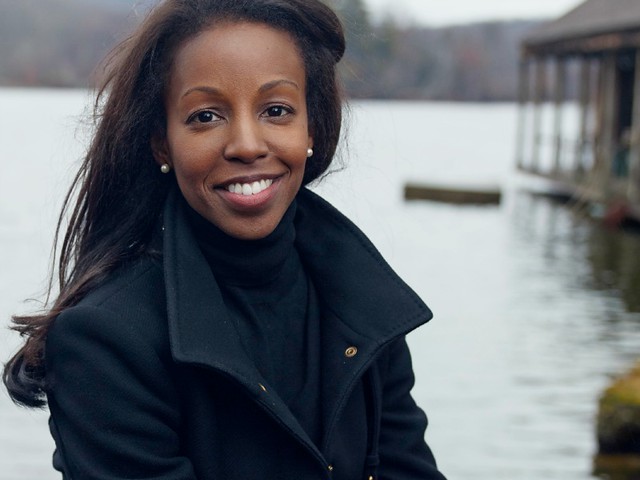Black History Month lecture to feature bestselling author and member of Harvard University faculty
Article body
Lewis is a bestselling author, curator and assistant professor at Harvard University. Her most recent book is Los Angeles Times bestseller, "The Rise: Creativity, the Gift of Failure, and the Search for Mastery," a narrative of how innovation, discovery and creative progress are driven by the challenges of goals not yet achieved.
In her book, Lewis profiles individuals from a variety of backgrounds—dancers, writers, painters, scientists, inventors and entrepreneurs—to show how our greatest accomplishments are often preceded by failure.
"Members of the selection committee feel that the themes and the variety of individuals examined in 'The Rise' will resonate with our students and faculty across STEM [science, technology, engineering and mathematics] and humanities disciplines and across racial and ethnic boundaries as well. Dr. Lewis's lecture will serve to inspire our students, faculty and staff, as well as create a space for these groups to come together and engage in a cross-disciplinary conversation," said Jaena Alabi, chair of the Africana Studies speaker selection committee.
The lecture is co-sponsored by the Multicultural Center, Women's Leadership Institute, University Special Lectures Fund, Auburn Athletics, Auburn University Libraries, the College of Education, the Department of English, the Department of Sociology, Anthropology, and Social Work, the Philpott-Stevens Research Fund, the Office of the Vice President of Student Affairs, College of Liberal Arts Community and Civic Engagement Initiative, the Caroline Marshall Draughon Center for the Arts and Humanities and the College of Architecture, Design and Construction.
Lewis's essays on race and on contemporary art and culture have been published in the professional and public spheres including the New York Times, the New Yorker, Artforum, Art in America and publications for the Smithsonian, the Museum of Modern Art and Rizzoli. Additionally, Lewis is guest editor of Aperture magazine's issue on "Vision and Justice," the topic of her first course at Harvard and the related exhibition on display recently at the Harvard Art Museums. Lewis also has served as a critic at Yale University School of Art. She is a trustee of Creative Time, the CUNY Graduate Center, the Brearley School and the Andy Warhol Foundation of the Visual Arts.
As part of her Cullman Fellowship at the New York Public Library, Lewis will research her contracted next book on the role of photography in exposing the fiction of racial categories. Prior to her Harvard appointment, Lewis held curatorial positions at The Museum of Modern Art in New York and the Tate Modern in London.
Related Media
Related Links
Media interested in this story can contact Communications Director Preston Sparks at (334) 844-9999 or preston.sparks@auburn.edu.
Auburn University is a nationally ranked land grant institution recognized for its commitment to world-class scholarship, interdisciplinary research with an elite, top-tier Carnegie R1 classification, life-changing outreach with Carnegie’s Community Engagement designation and an undergraduate education experience second to none. Auburn is home to more than 30,000 students, and its faculty and research partners collaborate to develop and deliver meaningful scholarship, science and technology-based advancements that meet pressing regional, national and global needs. Auburn’s commitment to active student engagement, professional success and public/private partnership drives a growing reputation for outreach and extension that delivers broad economic, health and societal impact.





